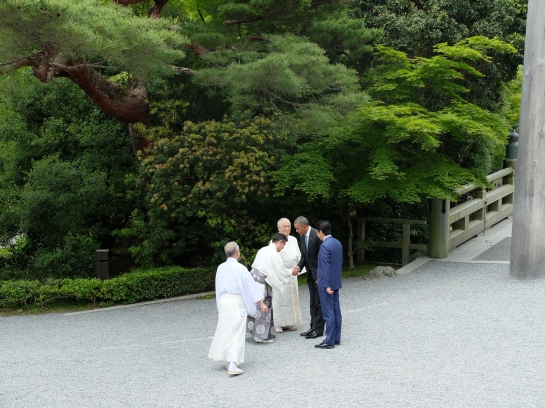Dr. Nancy Snow, Pax Mundi Professor of Public Diplomacy
Kyoto University of Foreign Studies
Spring 2018
n_snow@kufs.ac.jp
http://www.tokyonancysnow.com (course website)
http://www.nancysnow.com (personal website)
 http://www.nancysnow.com (personal website)
http://www.nancysnow.com (personal website)
Required Reading
Nancy Snow & Philip M. Taylor, Eds., Routledge Handbook of Public Diplomacy
Recommended Readings
The United States Information Agency: A Commemoration
Propaganda, Inc. by Nancy Snow (New York: Seven Stories Press, 2010)
Japan’s Information War by Nancy Snow (CreateSpace: Amazon, 2016)
Course Overview
Retired diplomat Edmund Gullion coined the term Public Diplomacy (PD) in 1965 while serving as Dean of the Fletcher School of Law and Diplomacy at Tufts University in Massachusetts (USA). The Fletcher School established The Edward R. Murrow Center for Public Diplomacy in memory of Murrow (1908-1965). Upon Gullion’s death in 1998, he received a write-up in the New York Times, which does not include the words “public diplomacy” but infers its value with reference to The Murrow Center, which “intended to establish direct communications with the peoples of other lands and to build mutual understanding. It also fit nicely with Mr. Guillion’s view, expressed just recently: ‘I always thought journalists and diplomats could learn a great deal from one another.’”
Public Diplomacy is a cross-section of international communication and diplomacy. It is a relatively new paradigm (pattern, model) in the field of international relations and the practice of diplomacy. Unlike traditional diplomacy, which only focuses on state-level relations, PD acknowledges the multifaceted nature of international communications, and can be carried out by individual citizens and NGO’s, as well as governmental agents and agencies. Simply put, PD focuses on the strategies, techniques and practice of influencing public attitudes and opinions.
Course Schedule
APRIL
Week 1: April 12: What is Public Diplomacy?
Week 2: April 19: How to Think About and Improve It
Week 3: April 26: Rethinking Public Diplomacy
MAY
Week 4: May 3: Golden Week (no class)
Week 5: May 10: Credibility and Public Diplomacy (Snow & Taylor, Chapter 13)
Week 6: May 17: Guest lecturer
Week 7: May 24: Public Diplomacy, Key Challenges and Priorities
Week 8: May 31: Dialogue-based Public Diplomacy: A New Foreign Policy Paradigm?
JUNE
Week 9: June 7: Hard Power, Soft Power, and Smart Power
- “Get Smart,” Foreign Affairs, by Joseph S. Nye, Jr. (July/August 2009)
- “Public Diplomacy and Soft Power,” Nye, The ANNALS (March 2008)
- “Soft Power,” Joseph S. Nye, Foreign Policy No. 80, (Autumn, 1990)
Week 10: June 14: Public Diplomacy: A Euphemism for Propaganda?
Week 11: June 21: Grassroots Movements in Public Diplomacy
(Snow & Taylor, Part 4: Chapters 16-20)
Answer the following questions before coming to class:
- What are the roles of non-state actors and individuals in PD?
- Do states, governmental agencies, or international organizations dominate PD?
Week 12: June 28: Media and Public Diplomacy
(Snow & Taylor, Chapter 5)
Answer the following questions before coming to class:
- What is the importance of media in forming public opinion?
- What kind of media coverage does public diplomacy get?
- How does the celebrity/spectacle penchant of the media help/hurt?
Week 13: July 5 : Creating a National Brand with Public Diplomacy
(Snow & Taylor, Chapters 21-23)
Naomi Klein (2002): America is not a Hamburger
Answer the following questions before coming to class:
- What is a nation brand? Can a nation be brand?
- Is PD a part of nation branding?
- How can you create a brand for a nation?
Week 14: July 12: Public Diplomacy & You
What comes to mind when you think about public diplomacy?
(Snow & Taylor, Chapter 11)
Week 15: July 19: Final Exam (open book); essay and short answer







